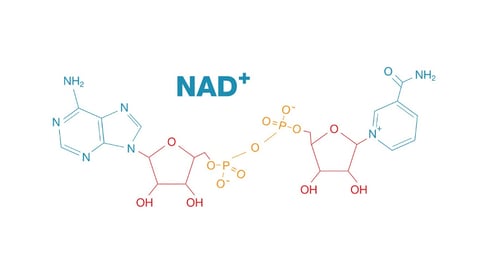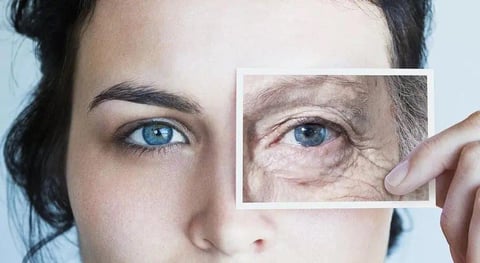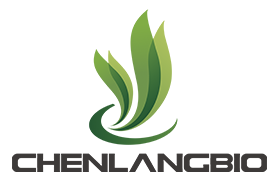It is known that NAD+ plays an important role in cells. NAD+ can help cells in the body produce energy, delay the aging of the body, and make us look younger. NAD+ has an obvious anti-aging effect on the skin.





But as we age, NAD levels will slowly decrease, which means our energy levels will also decrease, and our body functions will also decrease. This is the main principle of cellular aging.
Especially after the age of 25, many people seem to have been pressed on the accelerator button, and their skin is getting worse and worse! In fact, it is because as we age, the NAD+ present in human cells decreases year by year. NAD+ is an important coenzyme in human physiological reactions and participates in various physiological activities of the body. The level of NAD+ determines the vitality and aging rate of cells.
What Is Nicotinamide Adenine Dinucleotide
Nicotinamide adenine dinucleotide is a critical molecule found in all living cells. It is a key substance discovered in the field of human aging inhibition. NAD+ plays a vital role in various biological processes, such as energy metabolism, DNA repair, gene expression, and cellular communication. NAD+ exists in two forms: oxidized (NAD+) and reduced (NADH). The balance between these forms is essential for maintaining cellular homeostasis and proper function.
Nowadays, humans have a comprehensive understanding of the powerful functions of NAD+ and the principle of aging inhibition, and have applied the NAD+ aging inhibition theory to clinical practice and the development of aging inhibitors.
NAD+ Functions
NAD+ is its involvement in energy production
NAD+ exists widely in nature, from single-cell organisms such as bacteria to complex multi-cellular organisms such as primates. NAD+ is one of the most important molecules regulating cellular energy metabolism.
NAD+ is the key to the function of mitochondria, the cell generator. Mitochondria will produce electrons through a series of metabolic reactions and combine with NAD+, converting them into reduced NADH to generate energy.
If do not have adequate NAD+ levels, cells cannot produce any energy to survive and function. on the one hand NAD+ helps convert food into energy and on the other hand it plays a vital role in maintaining DNA integrity and ensuring proper cellular function to protect the body from aging and disease.
NAD+ is a critical substrate for enzymes involved in DNA repair. Poly(ADP-ribose) polymerases (PARPs), for example, use NAD+ as a substrate to catalyze the addition of ADP-ribose moieties to target proteins, facilitating DNA repair processes such as base excision repair and single-strand break repair. By supporting these DNA repair mechanisms, NAD+ helps maintain genomic stability and integrity, reducing the risk of mutations and diseases such as cancer.
Why Do We Get Wrinkles
When in skin cells the NAD+ decreases, the energy production and repair ability of cells in our body decreases, causing the aging of basal cells and directly affecting the state of the dermal layer of the skin.

There is a reticular structure in the dermis of the skin, which is composed of collagen fibers and elastic fibers. As we age, the muscle fibers become fragile. Once broken, part of this reticular structure will collapse to form wrinkles. The broken collagen fibers will regenerate. To connect, it is necessary to increase the content of NAD+ in cells, increase the metabolism of basal cells, repair aging collagen mother cells, reorganize the collagen network, and make the skin tight and elastic again, thereby achieving the purpose of delaying aging.
Scientific experiments have proven that the main function of nicotinamide adenine dinucleotide is to repair the cell source in the body, improve the energy metabolism of cell aging, stimulate the longevity protein in our body, and delay aging. Importantly, supplementing NAD+ can also increase the skin's moisturizing factor, increase the skin's moisture content, and keep the skin moist and bright. At the same time, it prevents the accumulation of melanin and the decrease in elasticity of the skin, and avoids wrinkles and looseness.
In addition, NAD+ can also resist damage caused by ultraviolet rays, thereby providing sun protection and skin care.
NAD+ can increase skin elasticity, lock in moisture, tighten skin, reduce fine lines, deep repair and improve skin texture, etc.
NAD+ repairs aging and damaged cells, allowing all types of cells to function normally and all body functions to return to normal. Gradually improve skin, sleep, attention, immunity and endocrine problems caused by aging, restore youthful vitality and maintain cell activity.
How Do I Increase My NAD Levels
The levels of Nicotinamide Adenine Dinucleotide in cells can be influenced by various factors, including dietary intake, metabolic activity, and cellular stress. Aging, for example, is associated with a decline in NAD+ levels, which has been linked to impaired mitochondrial function, decreased DNA repair capacity, and altered gene expression. Additionally, factors such as poor diet, sedentary lifestyle, and exposure to environmental toxins can further deplete NAD+ levels, compromising cellular function and increasing the risk of age-related diseases.
Given its central role in cellular metabolism and function, maintaining optimal levels of NAD+ is essential for overall health and well-being. Several strategies have been proposed to support NAD+ levels and promote its beneficial effects on human health. These include dietary interventions, supplementation with NAD+ precursors, and lifestyle modifications aimed at enhancing cellular metabolism and resilience.
One approach to increasing NAD+ levels is through the supplementation of nicotinamide riboside (NR) or nicotinamide mononucleotide (NMN), both of which are precursors to NAD+ synthesis. NR and NMN are converted into NAD+ through a series of enzymatic reactions in cells, bypassing potential rate-limiting steps in the NAD+ salvage pathway. Studies have shown that supplementation with NR or NMN can elevate NAD+ levels in various tissues and improve metabolic health in animal models and humans.
Another strategy to support NAD+ levels is intermittent fasting or calorie restriction, which have been shown to upregulate NAD+ synthesis pathways and activate sirtuins. By reducing calorie intake or extending fasting periods, cells may allocate resources towards NAD+ production and enhance cellular repair and maintenance mechanisms. In addition to its effects on NAD+ metabolism, intermittent fasting has been associated with numerous health benefits, including improved insulin sensitivity, enhanced autophagy, and extended lifespan in model organisms.
Exercise is another lifestyle intervention that can positively influence NAD+ levels and cellular metabolism. Physical activity stimulates mitochondrial biogenesis and oxidative metabolism, leading to increased demand for NAD+ as a cofactor in energy production pathways. Exercise-induced activation of sirtuins and other NAD+-dependent enzymes may contribute to the metabolic adaptations observed with regular physical activity, including improved cardiovascular function, enhanced muscle endurance, and reduced inflammation.
Furthermore, certain dietary components and supplements have been shown to support NAD+ metabolism and cellular function. For example, resveratrol, a polyphenol found in red wine and grapes, has been reported to activate sirtuins and enhance NAD+ levels in cells. Similarly, other natural compounds such as quercetin, fisetin, and pterostilbene have been investigated for their potential to modulate NAD+ metabolism and promote healthspan.
Please send inquiry to Email: [email protected] if you want to buy NAD+

